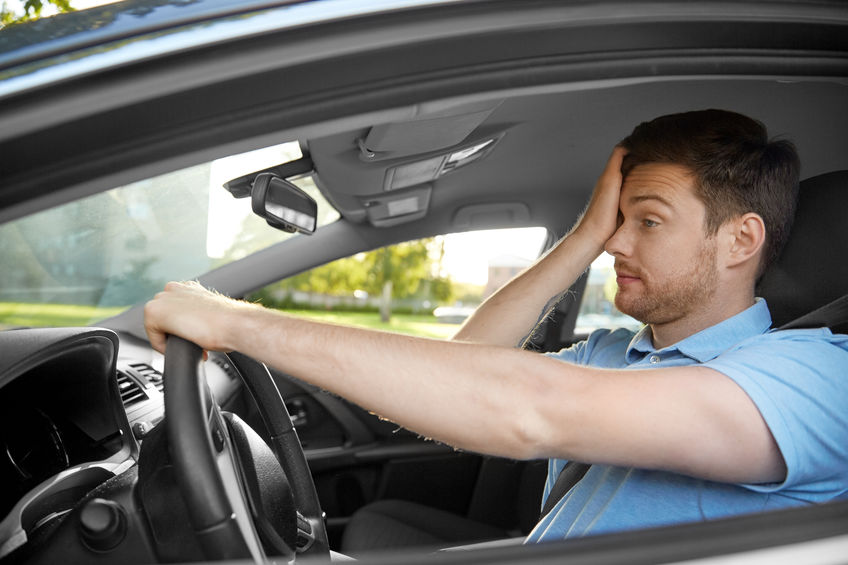NSF Drowsy Driving Week Campaign
November 1, 2019 | Category: Automobile Accidents | ShareThe National Sleep Foundation (NSF) announced on September 10 that the 2019 Drowsy Driving Prevention Week will be November 3-10, 2019. The campaign’s goal is to reduce the number of sleep-deprived drivers on our roads and highways.
 NSF believes that fall-asleep crashes are often the result of drivers voluntarily not getting proper sleep. Also, sleep disorders, such as obstructive sleep apnea and narcolepsy, affect millions of Americans. NSF encourages everyone to prioritize sleep and drive only when alert and rested.
NSF believes that fall-asleep crashes are often the result of drivers voluntarily not getting proper sleep. Also, sleep disorders, such as obstructive sleep apnea and narcolepsy, affect millions of Americans. NSF encourages everyone to prioritize sleep and drive only when alert and rested.
UPS has joined NSF in this year’s campaign and is committed to safe driving and road safety. It is launching special efforts during Drowsy Driving Prevention Week.
The National Highway Traffic Safety Administration (NHTSA) says that determining a precise number of drowsy-driving crashes, injuries, and fatalities is not yet a possibility. However, crash investigators do look for clues that drowsiness may have contributed to a crash. Its statistical reports rely on police and hospital reports to determine the incidence of drowsy-driving crashes. Using these sources, NHTSA estimated that in 2017, 91,000 police-reported crashes involved drowsy drivers. These accidents led to an estimate of 50,000 people being injured and nearly 800 people dying. Experts agree that this is an underestimate of the actual impact of drowsy driving.
NHTSA says drowsy-driving crashes
- Occur most frequently between midnight and 6 a.m., or in the late afternoon. At both times of the day, people experience dips in their circadian rhythm, the human body’s internal clock that regulates sleep;
- Often involve only a single driver (and no passengers) running off the road at a high rate of speed with no evidence of braking; and
- Frequently occur on rural roads and highways.
Tips on how to avoid driving drowsy from NHTSA:
- Getting adequate sleep on a daily basis is the only true way to protect yourself against the risks of driving when you’re drowsy. Experts urge consumers to make it a priority to get seven to eight hours of sleep per night. For more information on healthy sleep, see Healthy Sleep At A Glance(PDF, 1.81 MB) at the National Heart, Lung, and Blood Institute website.
- Before the start of a long family car trip, get a good night’s sleep, or you could put your entire family and others at risk.
- Many teens do not get enough sleep at a stage in life when their biological need for sleep increases, which makes them vulnerable to the risk of drowsy-driving crashes, especially on longer trips. Advise your teens to delay driving until they’re well-rested.
- Avoid drinking any alcohol before driving. Consumption of alcohol interacts with sleepiness to increase drowsiness and impairment.
- Always check your prescription and over-the-counter medication labels to see if drowsiness could result from their use.
- If you take medications that could cause drowsiness as a side effect, use public transportation when possible.
- If you drive, avoid driving during the peak sleepiness periods (midnight – 6 a.m. and late afternoon). If you must drive during the peak sleepiness periods, stay vigilant for signs of drowsiness, such as crossing over roadway lines or hitting a rumble strip, especially if you’re driving alone.
“Should you or a loved one be injured in an accident caused by another driver, please first seek medical attention, then contact our experienced legal team. We are available when you need us, 24/7, and there are no costs or attorney fees unless we make a monetary recovery for you,” said Naples Personal Injury Attorney Randall Spivey of Spivey Law Firm, Personal Injury Attorneys, P.A.
Naples Personal Injury Attorney,Randall L. Spivey is a Board Certified Trial Attorney – the highest recognition for competence bestowed by the Florida Bar and a distinction earned by just one (1%) percent of Florida attorneys. He has handled over 2,000 personal injury and wrongful death cases throughout Florida. For a free and confidential consultation to discuss your legal rights, contact the Spivey Law Firm, Personal Injury Attorneys, P.A., in Lee County at 239.337.7483 or toll-free at 1.888.477.4839, or by email to Randall@SpiveyLaw.com. Visit SpiveyLaw.com for more information. You can contact Spivey Law Firm, Personal Injury Attorneys, P.A.in Charlotte County at 941.764.7748 and in Collier County 239.793.7748.

